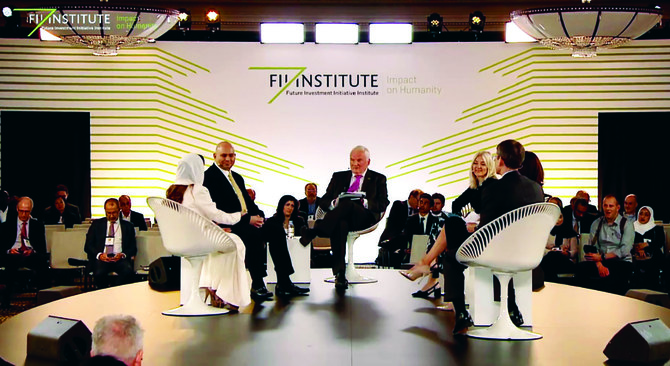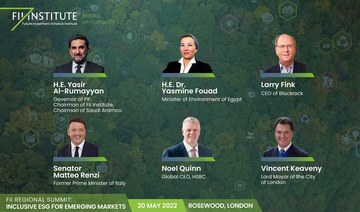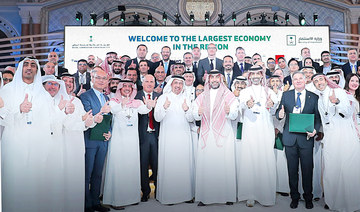LONDON: The Future Investment Initiative Institute hosted a summit in London about Environmental, Social and Governance in emerging markets, involving world leaders, global CEOs, international investors, thought leaders and heads of sustainability.
The event unveiled a new inclusive ESG framework and scoring methodology to inform and accelerate investments in emerging economies.
The new methodology aims to give unbiased ratings for companies in emerging markets who currently receive less than 10 percent of ESG flows, despite being home to nearly 90 percent of the world’s population and roughly half of global GDP.
ESG rating agencies are one of the main barriers to increasing investment in emerging markets. Currently, mainstream rating agencies employ key perfor- mance indicators not relevant to emerging markets. The existing frameworks focus too much on disclosure and ignore year-over- year performance improvement.
The new framework, developed with the support of Ernst & Young, values performance improvement over time more than breadth of disclosure, emphasizing sectoral challenges rather than country risks, to ensure fair competition between companies in both emerging markets and developed markets.
The FII Institute is investing €500,000 ($527,515) in Timbeter, a leading green tech company specializing in timber measurement. Timbeter provides an artificial intelligence-driven photo-optics application that accurately determines quantities of logs in an area with precise length and diameter.
Timbeter is a software as a service workflow management solution for the timber industry, founded in 2013 at the Nordic Hackathon by Anna-Greta Tsakhna, its CEO, and Martin Kambla, CTO.
Forestry continues to be an important and controversial issue, with world forests decreasing by a third in size over the last century due to reckless practices.
This technology is key to a more proactive management of forests and a more sustainable sector.
Meanwhile, the ESG white paper is designed to encourage greater ESG investment in emerging markets. It calls on investors to publicly commit to raising the portion of capital allocated to emerging markets from less than 10 percent today to a minimum of 30 percent of committed and invested capital by 2030. It also calls on governments to encourage emerging market-headquartered companies to become more proactive at disclosing relevant information through their normal reporting channels.
Richard Attias, CEO of the FII Institute, said: “Central to our work at FII Institute is to increase awareness about the weaknesses in current ESG standards and their impact on global sustainability prospects, and to advocate for an inclusive and equitable application of ESG through driving real action by key players globally.
“ESG has been one of the fastest-growing investment strategies over the past few years, accounting for one-third of all assets under management. But this growth is not even. Working with our partners at EY, we identified and removed the barriers to ESG investment in emerging markets, which are often overlooked,” he added.
“By launching the Inclusive ESG Framework and Scoring Methodology, investing in a global sustainable solutions company, and publishing our recent ESG white paper — we are making tangible actions to create a better future for humanity. And we are confident that our partners around the world will help us drive those actions further.”




















